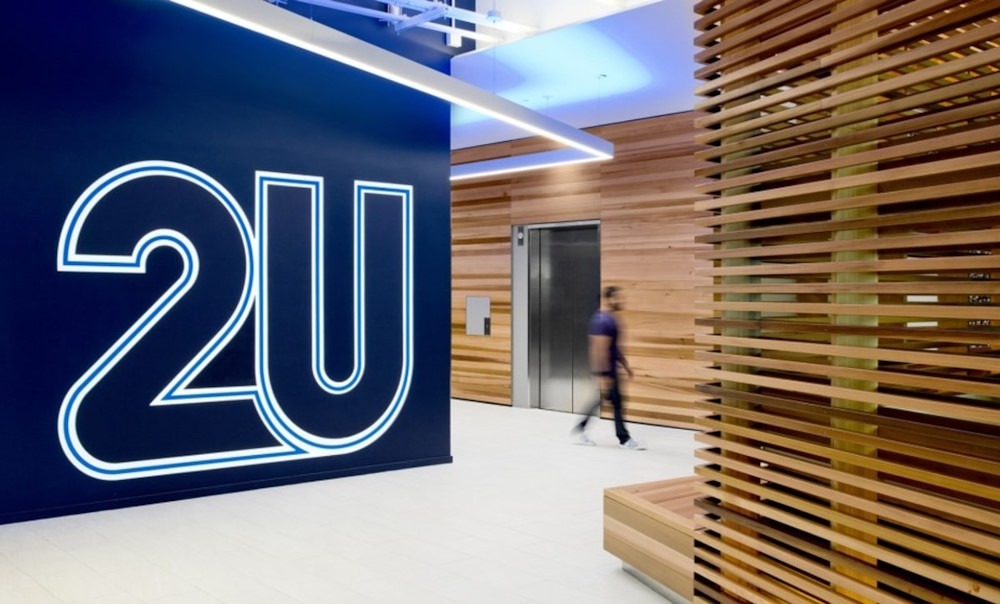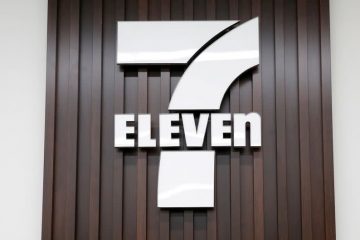Online education Giant 2U’s decline

In May 2018, employees from education technology company 2U celebrated in style as they paraded through the streets of New Orleans. Beads and booze were plentiful on their floats, creating a festive atmosphere reminiscent of Mardi Gras.
They had a lot to rejoice about. 2U, a company that collaborates with universities to offer online degree programs and other classes, boasted a market value exceeding $5 billion and secured profitable contracts with esteemed institutions such as Georgetown University and the University of Southern California.
After six years, the company’s value has soared to around $30 million, but it now finds itself grappling with a critical dilemma. With a staggering $900 million in debt weighing down its balance sheet, there are university leaders who are considering leaving.
The company’s executive team is actively working to resume negotiations with lenders. Additionally, 2U mentioned earlier this month its ongoing efforts to reduce expenses and its optimistic outlook for revenue growth in the coming year. The company also emphasized the significance of securing new contracts and partnerships.
2U aimed to transform education by bridging the gap between for-profit online learning and esteemed universities. However, due to changing student interests and intense competition, including from universities that recognized they could handle most of the operation internally, it has faced difficulties in keeping pace.
We were incredibly powerful and unstoppable.
The original plan was straightforward: to create, select students for, and manage online courses for prestigious schools, who would be responsible for their own admissions process and faculty. The company typically secures long-term contracts and receives 60% of the tuition revenue.
In 2009, USC began offering graduate degrees in education, followed by social work in 2010. Georgetown and University of North Carolina at Chapel Hill also offer programs in nursing and business.
“We were incredibly powerful,” said one former executive. Slowing us down proved to be quite a challenge.
2U became a publicly traded company in 2014 and rapidly grew its list of partner schools.
However, the company faced challenges in replicating its initial successes. Online tuition fees typically align with the costs of on-campus courses offered by schools. As prices increased, the programs became more difficult to sell. Due to changes in students’ financial considerations, shifts in the online advertising landscape, and increased competition, marketing costs began to rise significantly, which 2U typically covered.
Driven by the need to secure students, admissions representatives were highly proactive, bombarding prospects with numerous calls and emails. Several former students have gone as far as filing lawsuits, claiming that 2U and its partner schools provided false information about the programs or downplayed the potential expenses of enrolling.
According to Charles “Chip” Paucek, the former CEO of 2U, the company faced unfair accusations of being predatory and was unjustly criticized solely because it operated as a for-profit entity.
Furthermore, the company has failed to generate any annual profit since going public.
Paucek is renowned for his exceptional sales skills, sporting a few days of stubble and a stylish wardrobe of blazers and jeans. His energy seems to know no bounds.
Paucek prioritized culture, taking on the role of 2U’s CEO in 2012 after collaborating with John Katzman from Princeton Review to establish the company in 2008. 2U emphasized their guiding principles of “Having fun” and “Caring deeply.” The walls of a staircase at the Maryland headquarters were adorned with the lyrics of Journey’s “Don’t Stop Believin'” – a song that Paucek particularly enjoys.
Every year, almost all full-time staff were transported to a three-day gathering in various locations such as Las Vegas and Long Beach, California. They received input from students, high-profile executives, and even Michelle Obama.
“On one hand, it was excessive,” commented a seasoned senior employee. However, employees thoroughly enjoyed their experience at the company.
Dark clouds and a large seabird
In 2019, the average enrollment in its largest programs had decreased compared to the levels in 2017.
According to a person involved in the process, prospective buyers were hesitant to proceed after observing the company’s significant expenditure on acquiring new students. The company attempted to attract private-equity firms as potential buyers in both 2019 and 2020.
2U started losing contracts to competitors such as Noodle and Risepoint. These companies provided schools with options to purchase specific services like recruiting support or course development technology, rather than the comprehensive packages offered by 2U.
In 2022, 2U began introducing contracts with increased flexibility. However, according to some critics, it was already too late by that point. Furthermore, schools were facing competition from within as they gained newfound confidence from successfully transitioning courses online during the pandemic.
2U expanded its operations into executive education and tech boot camps through strategic acquisitions in 2017 and 2019. In June 2020, 2U expressed interest in acquiring edX, the nonprofit provider of massive, open online courses supported by prestigious institutions like Harvard University and the Massachusetts Institute of Technology. By leveraging edX, 2U has the opportunity to expand its reach to a worldwide audience and reduce advertising expenses by consolidating its promotions on a unified platform.
2U obtained $475 million in short-term financing to acquire edX, however, as the $800 million deal was finalized in November 2021, the cost of borrowing was increasing.
Although acknowledging the sound reasoning behind the strategic plan for edX, Paucek admitted that using debt was an error in hindsight.
In early 2023, the company made the decision to refinance some loans, extending a crucial due date by two years. However, their attempt to alleviate the burden last fall was unsuccessful.
Meanwhile, the company’s longest-standing client was starting to negatively impact its reputation.
USC’s master’s degree in social work has been a subject of controversy, as students have found themselves burdened with significant debt and struggling to find well-paying jobs, all for what some consider to be a less-than-satisfactory educational experience. In 2021, a Wall Street Journal investigation into the program sparked inquiries from lawmakers and increased scrutiny of the revenue-sharing model that 2U relied on.
According to executives, the company consistently encouraged schools to keep their tuition increases in check and promote more affordable options, such as the University of Texas at Austin’s $10,000 master’s program in artificial intelligence.
A fresh chapter
In November of last year, 2U and USC made the decision to dissolve the majority of their partnerships. According to a source familiar with the arrangement, USC paid you a sum of $40 million, which is said to compensate for the tuition revenue the company would have received from the students it had already recruited.
2U made $26 million from a divorce settlement last fall, but it chose not to disclose the name of the school involved. It has gradually ended other relationships with Tufts, American, and Baylor universities in recent years. 2U chose not to provide a comment, as it is bound by confidentiality obligations in its university agreements.
According to a confidential March internal audit viewed by the Journal, UNC, a longtime partner, has also become disillusioned with the company. UNC has decided to terminate its contract for the accounting program and is also planning to end one in public administration. The master’s in public health and M.B.A. also seek to sever connections.
According to the audit, 2U’s marketing plans lacked clarity, enrollment projections were excessively optimistic, and the quality of its course production was deteriorating. Based on the audit findings, UNC has stated that they do not plan on entering into any new degree programs with 2U.
The company announced Paucek’s departure in November, as revenue continued to decline. Enrollments in the degree programs experienced a significant decline of 30% from their peak in 2022 by the end of last year. The company’s share price has dropped significantly, putting it at risk of being removed from the Nasdaq.
Paul Lalljie, who assumed the top position after his tenure as chief financial officer since 2019, maintains a positive outlook on what he refers to as the company’s “shrink-to-grow strategy.”
2U leaders have been engaging in discussions with university presidents, addressing concerns about a potential decline.
One president, whose school partners with 2U, expressed anticipation for the outcome. If the company is unable to allocate resources towards marketing the programs, the president warned that it could have dire consequences for everyone involved.










